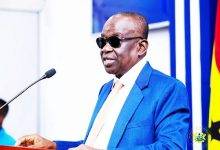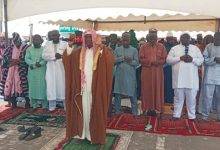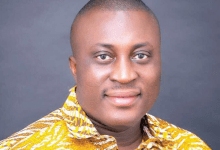
A comprehensive report on Ghana’s nuclear power programme is in the offing, expected, to boost the country’s energy production and drive industrialisation.
The report, to be submitted to government next month, would inform its direction in making the needed commitments to develop the country’s first nuclear power plant.
It comes on the back of Ghana’s conclusion of the initial phase of the Integrated Nuclear Infrastructure Review (INIR), in Accra, which assessed the national infrastructure for the introduction of nuclear power.
This came to light on Monday, during the opening of a three-day follow-up meeting on Ghana’s INIR, which brought together top-notch experts in the country’s energy space as well as a team of international experts to discuss best practices in implementing the nuclear programme.
Dr Seth Debrah, Director of the Nuclear Power Institute, in a presentation on the status of Ghana’s Nuclear Power Programme (NPP), indicated that the report which is sectioned into seven, would address all issues related to the successful implementation of the programme.
“Each section comes with conclusions and recommendations on how to progress from the programme stage to full scope project implementation if the national interest decides so,” he noted.
According to Dr Debrah, all three key organisations relevant for the development of the programme have either been established or building capacity and restructuring for the next stage of the project.
“The Ghana Nuclear Power Programme Organisation and Nuclear Power Ghana are promoting the benefits of the programme and project. It is assuring the public of the country’s technical human resources capacity, and the need for continuous development of it while the Nuclear Regulatory Authority (NRA), is letting public be assured of safety and security against radiation hazards.”
The Deputy Minister of Energy, William Owuraku Aidoo, underscored the significance of a robust energy sector in driving socio-economic development, adding that “the goal of government to eradicate poverty and attain sustainable development can never be fully realised without acknowledging this fact.”
He said that the medium to long term energy forecast of the country would require an alternative like nuclear power to diversify power supply and enhance energy security for industrialisation.
To this end, Mr Aidoo noted efforts made by government in advancing Ghana’s INIR mission through strengthening the NRA, the NPG and other relevant stakeholders to achieve a successful nuclear power programme.
In a speech read on his behalf, the Chief Executive Officer of the Bui Power Authority, Mr Fred Oware, said that “adding nuclear power to our hydro, thermal and renewable energy sources would give us resilience and reliability required to achieve the objectives of industrialising and creating jobs for our people.”
BY ABIGAIL ANNOH





